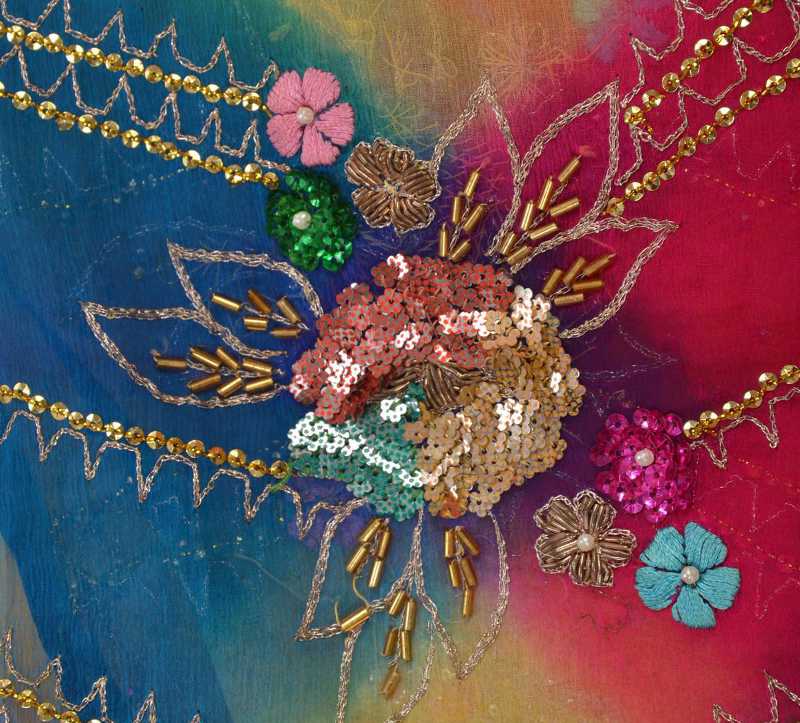===
0277,
2
===

=== |
 |
shikastah : Broken; defeated, routed; carried away (by inundation, as river-banks, &c.); reduced to straits; bankrupt; sick; wounded; weak, infirm'. (Platts p.730)
be-lu:tf : 'Unkind, ungracious; inelegant; without pleasure, insipid, flavourless, vapid'. (Platts p.204)
bhii : 'Also, too, even, and, with; yet, still, besides, likewise, moreover, furthermore'. (Platts p.198)
FWP:
SETS == BHI
MOTIFS
NAMES
TERMS == THEMEThis verse offers two beautifully complex uses of bhii . In the first line the sense seems to be something almost indefinably colloquial-- something that Platts tries to capture with 'yet, still, besides, likewise, moreover, furthermore' (see the definition above). These choices are partly just sentence rebalancers, but partly something more, something emphatic or forceful. In his discussion of {601,1} SRF gives the example aap bhii ((ajab aadmii hai;N .
Alternatively, the speaker could be maintaining, in the more normal usage, that his charm was still operative 'even' or 'also' when he was pale and worn.
Then in the second line, the bhii has its usual meanings. If we take it as 'also' (adding a new member to a pre-existing class), then the effect is that you 'turn the night into dawn' in other places, do it a few times here as well. If we take it as 'even' (emphasizing singularity or liminality), then the invitation is to extend your usual night-into-dawn behavior beyond its normal range, 'even' to the speaker's abode.
And of course, what does it mean to 'turn the night into dawn'? SRF does a fine job running through the possibilities, and also explains the range of meanings for rang-e shikastah .
Note for translation fans: There remains the untranslatable little to , used here as an ineffable sentence rebalancer. I've used 'well', but only for want of something better. Ultimately these little words are impossible. One can just ignore them, or else provide counterparts like 'well', 'then', 'so'-- none of which is truly satisfactory.